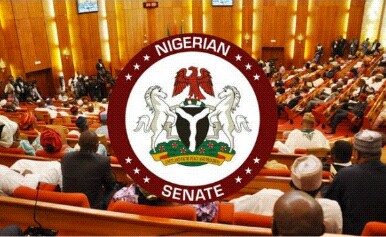The Senate yesterday approved the sum of N1.64 trillion as the amount for new borrowing to fund the 2019 budget deficit.
Senators said additional financing of N172.47bn would be derived from privatization proceeds and N556.02bn from loans secured for specific development projects.
The Senate also approved a daily oil production of 2.3 million barrels per day and an oil benchmark of $60 a barrel as well as an exchange rate of N305 to a dollar for the 2019 budget as proposed by President Muhammadu Buhari.
The president had said that the total N8.83 trillion proposed expenditure for 2019 included grants and donor funds amounting to N209.92 billion.
The resolutions were reached after the adoption of the report of the committee on finance chaired by Sen John Owan-Enoh (APC, C/River) on the Medium Term Expenditure Framework (MTEF) and Fiscal Strategy Paper (FSP), whose approval usually precedes that of the budget.
Senators are expected to approve the 2019 budget next Tuesday.
Buhari’s 2019 budget proposal was based on real Gross Domestic Product (GDP) growth rate of 3.01 percent and an inflation rate of 9.98 percent, with a total projected revenue of N6.97 trillion, about three percent lower than the 2018 estimate of N7.17 trillion.
They said the Federal Government should harness the full optimal potential of the Federal Ministry of Mines and Steel Development in terms of revenue generation to minimize the level of new borrowing.
The Federal Government, the Senate added, should consider reducing the level of granting waivers and exemptions while ensuring that the Nigerian Customs Service personnel were at all oil terminals for accountability.
The senators said the Federal Inland Revenue Service (FIRS) should consider increasing tax on luxury goods and services.
Senators encouraged the Central Bank of Nigeria (CBN) to continue adopting strategies that would aid the strengthening of the Naira and bridging the gap between the official and parallel market rates of the foreign exchange.
Similarly, the Senate approved the sum of N500bn as special intervention fund of government aimed at “minimizing and reducing unemployment figures, alleviating and eradicating poverty and increasing the general well-being of ordinary Nigerians.
DT
